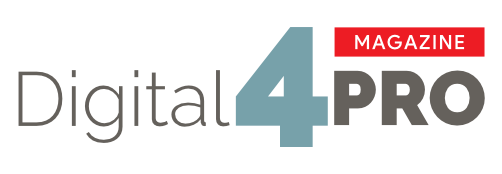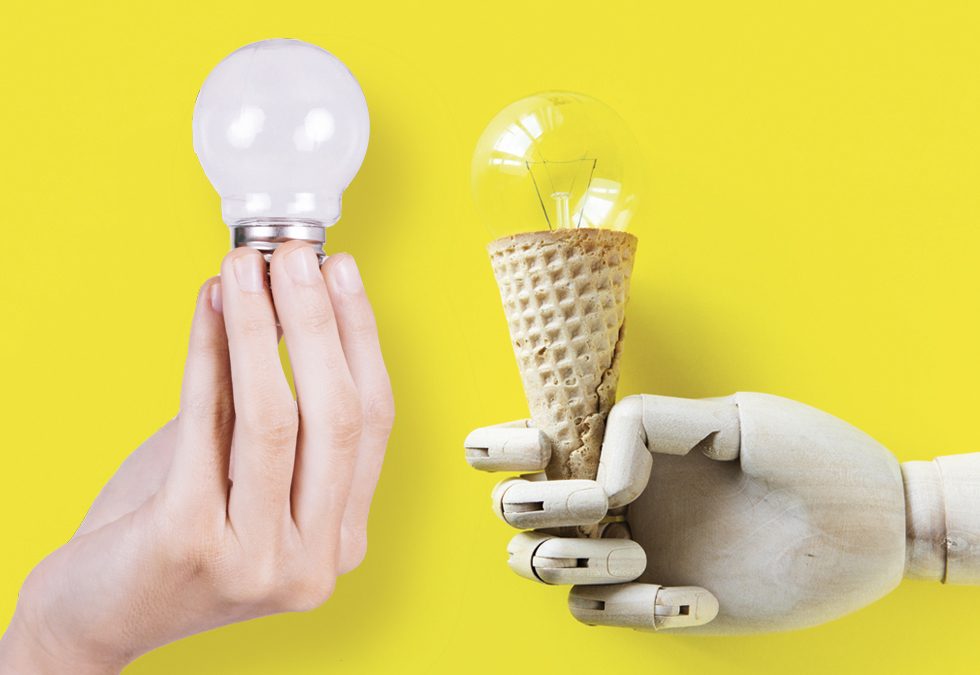- Mail:
- info@digital4pro.com
Work and digital transition

Settore turismo: Lucio Gomiero, Direttore Generale PromoTurismoFVG
8 Maggio 2020
Lavoro e transizione digitale
13 Maggio 2020Once upon a time, … Steve Jobs! You will immediately think, dear readers, reading the title of this post.
No, this time you will not have a list of wonders or #digitaltransformation anxieties.
Let’s face it, there has never been a time like this before, or maybe yes: we took a leap from fitness to health and in the new space of social distancing we ask ourselves questions that perhaps we didn’t even imagine last Christmas.
If we do it on a work break from our home it is thanks to digital. Perhaps to say that digital saves our lives is a bit excessive, but we can certainly admit that being “smart” helps us a lot.
Stewart Brand1 said, many years ago: «You can try to change people’s heads, but you are only wasting time. Change the tools they have, and you will change the world. “Today I would add: “if people’s world is changed, then they will become better at using the tools they have in hand”.
In the next few lines, therefore, I will not write about work and digitization, but I will indicate facts that in my opinion tell us that we are experiencing the transition from work to post-digital work.
Post-digital work is the working condition in which digital technology is incorporated in human activity, not like in digital where it is distinct from it. Post-digital work is an attitude of being human rather than being digital.
In post-digital the distinctions between material and immaterial work and between digital native and digital migrant are irrelevant.
Post-digital work is the effect of the speed of transformation of people’s interaction with digital technology.
For a long time we were told2 that mobile devices would become offices, classrooms and personal assistants, that competence in social media would be an essential requirement for all workers, that to excel in the connected world a new mentality would be needed, that leaders would had to develop a culture based on constructive feedback, empathy and ability to lead virtual teams.
Already in April 2019, Accenture Italia, highlighting how digital technologies allow companies that want to invest in them to gain a better understanding of their ecosystem and to engage in more effective relationships, indicated in confidence, responsibility, privacy and security the critical factors of the post- digital indicating the need for the world of work to proceed ethically and responsibly, with particular attention to people to support them in the process of change. In fact, with the adoption of digital workers are developing new skills and in some cases find themselves paradoxically waiting for the company they work for to keep up.
This particular speed had also been well highlighted in September 2015 by Bruno Mettling in “Transformation numérique et vie au travail”, where we can read that it is necessary to put the digital transition at the service of the quality of work by favoring the development of the managerial skills of those who are most directly impacted by this transformation, promoting a sustainable use of the use of digital media, ensuring the balance between private life and profession, supporting the ability to disconnect, paying attention to cognitive or emotional overloads, helping to master the flow of information, protecting the community dimension in the development of remote work, redesigning workplaces, rethinking the duration of work in terms of workload, updating professional risks, reconsidering the systems of assigning objectives and evaluation, ensuring that remote work alternates with the one co-present in the same workplace, defining the means of communication and collaboration, building the chief collaborator’s trust in remote management, granting autonomy and renouncing a part of control, sharing information, implementing a culture of co-construction and co-innovation, anticipating the challenges of the transition to digital.
Yes, I admit, this long list of results to be ensured all together gives a little dizziness and could push us to take defensive positions; but the well-being of those who work now is not a “more”. Today not only McKinsey, Nike, Google and Apple have programs ranging from meditation to training to refocus and learn to relax.
Here we are today and the current situation is changing a lot of the status quo.
The ability to work flexibly is now a global super trend based on the awareness that making the way you work customizable makes people more productive.
At the same time, according to the analyses communicated by Cefriel last February, 187 million emails are exchanged every minute, 38 million Whatsapp messages, 18 million sms, almost 900 thousand dollars spent on e-commerce, 375 thousand apps downloaded. In total, 3 quintillion bytes of data are generated every day. The research also shows that in a minute the videos made on Sanpchats reach 2.4 million, the logins on Facebook reach 973 thousand, the tweets sent are 481 thousand and the scrolls on Instagram up to 174 thousand. This huge generation of data can increase sales performance by 20%, improve profiling by 25%, refine risk estimation to decrease customer credit risk by 30%. In short, you can increase the efficiency of companies, improve the relationship with customers and create new opportunities. Of course, this huge data production has brought digital technology to the heart of our daily lives.
In the heart, but not to the heart. Then something changed …
1 Stewart Brand (Rockford, December 1938famous for having coined the term “personal computer” in his book in 1974 “Two Cybernetic Frontiers”.
2 10 Previsions for 2020 work of Jeanne C. Meister.




